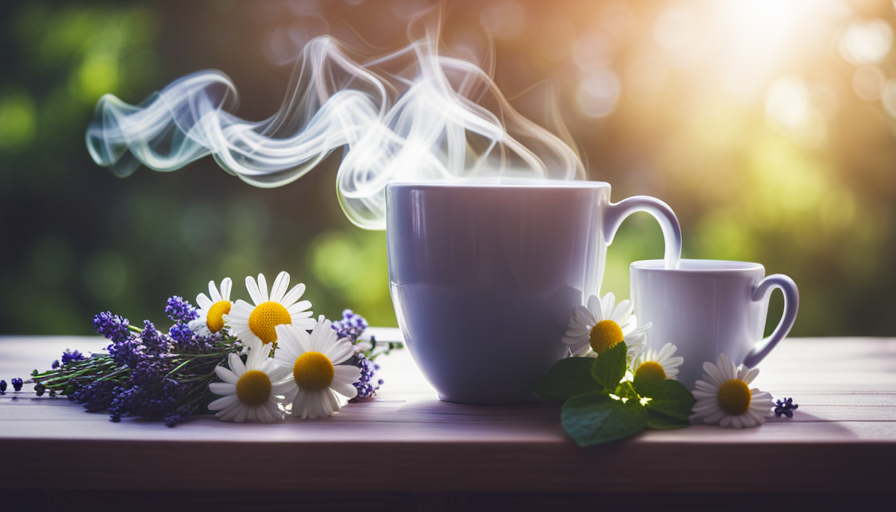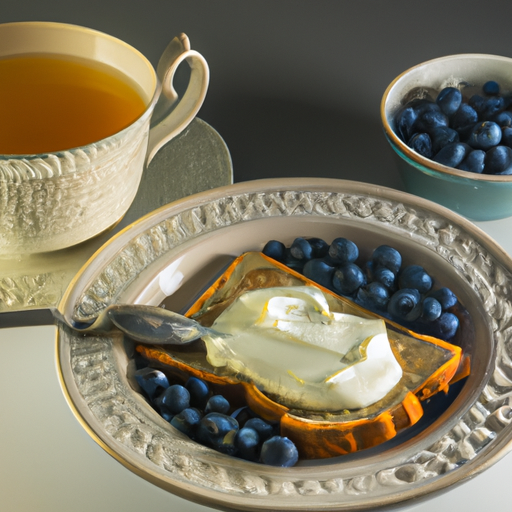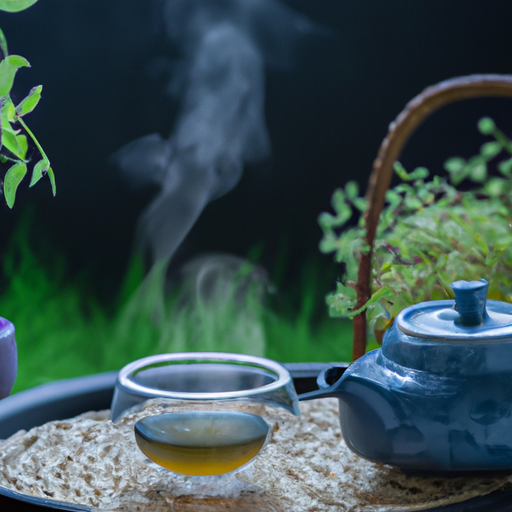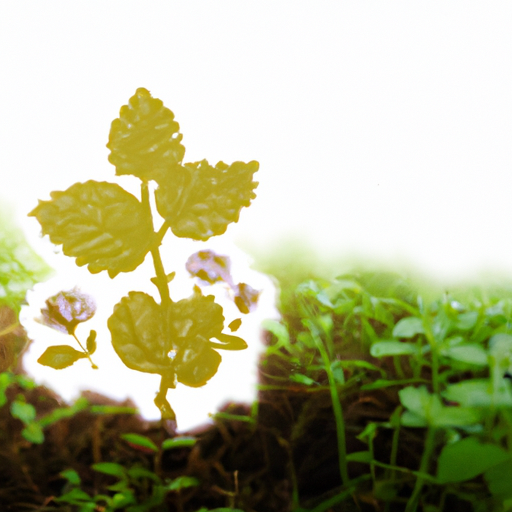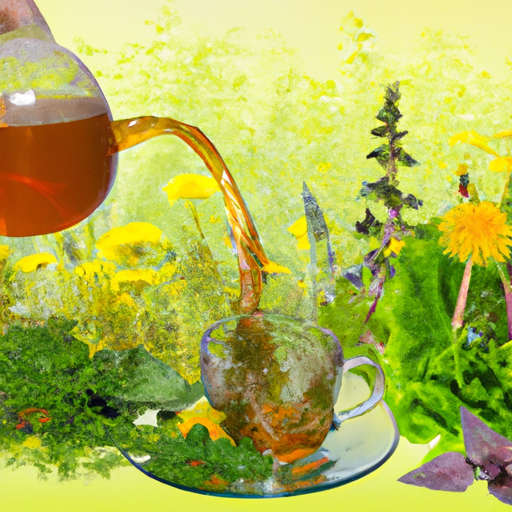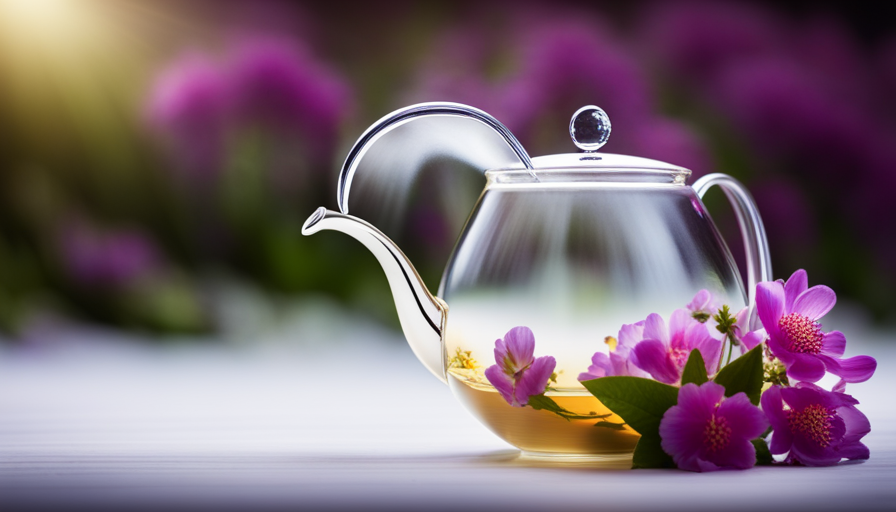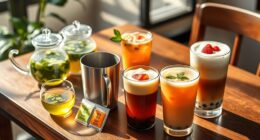So you’re confident in your knowledge of tea, huh? Well, let me educate you, my friend. There is a vast variety of teas out there that you likely have yet to discover.
I’m talking about herbal tea. Yeah, you heard me right, herbal tea. It’s not your grandmother’s cup of Earl Grey, oh no. This stuff is a whole different ball game.
Herbal tea, my dear reader, is a magical concoction of nature’s finest herbs and botanicals. It’s like a warm hug from Mother Earth herself. You see, while traditional tea comes from the leaves of the Camellia sinensis plant, herbal tea is made from all sorts of other plants.
We’re talking chamomile, peppermint, ginger, and so much more.
But herbal tea is not just a pretty face. Oh no, it’s got some serious health benefits too. From boosting your immune system to calming your nerves, herbal tea is a natural remedy for all sorts of ailments. And the best part? You can brew it up right in your own kitchen.
So, my friend, if you’re ready to step into the world of herbal tea, strap in and get ready for a wild ride. Trust me, once you go herbal, you’ll never go back.
Key Takeaways
- Herbal tea is made from various plants and not just Camellia sinensis.
- Herbal tea has a rich history and cultural significance in many cultures.
- Herbal tea has health benefits such as boosting the immune system and calming nerves.
- Herbal tea blends offer a variety of flavors and health benefits.
History and Origins of Herbal Tea
Did you know that herbal tea has a rich history and fascinating origins? Herbal tea, also known as tisane, has been consumed for centuries and holds great cultural significance in many different cultures around the world.
The history of herbal tea dates back to ancient civilizations such as the Egyptians, Greeks, and Chinese, who used various herbs and plants to create medicinal infusions. These early civilizations believed in the healing properties of herbs and used them to treat various ailments and promote overall well-being.
Herbal tea has been an integral part of traditional medicine systems like Ayurveda and Traditional Chinese Medicine (TCM). In Ayurveda, herbs are carefully selected based on their properties and dosha (body type) to create personalized herbal teas that balance the mind, body, and spirit. Similarly, in TCM, herbal teas are used to restore the body’s balance of yin and yang energies.
The cultural significance of herbal tea extends beyond its medicinal properties. In many cultures, herbal tea is a symbol of hospitality and is often served to guests as a gesture of welcome. It is also used in religious ceremonies and rituals as a way to connect with nature and the divine.
As we delve into the types of herbal tea, you will discover the wide variety of flavors and benefits that each one offers. So, let’s explore the fascinating world of herbal tea further and uncover the magic within each cup.
Types of Herbal Tea
Indulge in a variety of soothing blends that’ll transport your taste buds to a world of relaxation and refreshment. Herbal tea, a natural and holistic beverage, offers numerous benefits to both your body and mind. Made from the infusion of herbs, flowers, and fruits, herbal teas are caffeine-free alternatives to traditional teas.
Here are three popular herbal tea flavors that boast unique tastes and health benefits:
-
Chamomile: Known for its calming properties, chamomile tea is a perfect choice to unwind after a long day. It aids in digestion, promotes better sleep, and soothes anxiety.
-
Peppermint: Refreshing and invigorating, peppermint tea is a delightful pick-me-up. It helps relieve indigestion, supports respiratory health, and provides a cooling sensation.
-
Rooibos: Originating from South Africa, rooibos tea is rich in antioxidants and minerals. It boosts the immune system, aids in digestion, and promotes healthy skin.
With a wide range of flavors available, herbal tea offers something for everyone. Now, let’s delve into the art of brewing these delightful concoctions and discover the perfect techniques to extract the full potential of each herbal blend.
Brewing Techniques for Herbal Tea
Get ready to experience the ultimate relaxation as we explore the art of brewing these delightful herbal blends and unlock their full potential.
When it comes to brewing techniques for herbal tea, there are a few key factors to consider to ensure a perfect cup every time. First and foremost, the quality of the water is crucial. I recommend using filtered or spring water to avoid any unwanted flavors or chemicals.
Next, pay attention to the steeping time. Unlike traditional tea, herbal blends often require a longer steeping time to fully release their flavors and beneficial properties. Generally, a steeping time of 5-7 minutes is recommended, but it can vary depending on the type of herbal tea you’re brewing. To achieve the best results, follow the instructions provided on the packaging or experiment with different steeping times to find your preferred strength.
As we move into the next section about the health benefits of herbal tea, you’ll discover how these brewing techniques contribute to enhancing the overall wellness experience.
Health Benefits of Herbal Tea
Discover the incredible ways sipping on these natural elixirs can transform your well-being and leave you feeling rejuvenated from the inside out. Herbal teas offer a plethora of health benefits, making them a perfect addition to your daily routine. Not only do they provide a delicious and refreshing alternative to sugary beverages, but they also offer a wide range of medicinal properties.
Here are five reasons why incorporating herbal tea into your life can have a positive impact on your health:
-
Boosts the immune system: Herbal teas are packed with antioxidants, vitamins, and minerals that help strengthen the immune system and protect against illnesses.
-
Soothes digestive issues: Many herbal teas, such as peppermint and ginger, have calming effects on the stomach, aiding in digestion and relieving discomfort.
-
Reduces stress and anxiety: Certain herbal teas, like chamomile and lavender, have natural calming properties that promote relaxation and reduce stress levels.
-
Supports weight loss: Some herbal teas, such as green tea and dandelion tea, can help boost metabolism and aid in weight loss efforts.
-
Promotes better sleep: Herbal teas like chamomile and valerian root have sedative properties that can help improve sleep quality and alleviate insomnia.
By incorporating these health benefits into your daily routine, you can enhance your overall well-being and experience the natural healing powers of herbal tea. As we delve into the world of herbal tea blends and recipes, you’ll discover even more ways to enjoy these delicious and beneficial beverages.
Herbal Tea Blends and Recipes
Try mixing different flavors and aromas to create your own unique blend of soothing and invigorating elixirs. Herbal tea blends aren’t just delicious, they also offer a wide range of health benefits.
For relaxation, you can try combining chamomile and lavender, both known for their calming properties. The floral notes of chamomile complement the earthy scent of lavender, creating a soothing and aromatic blend that can help ease stress and promote a restful night’s sleep.
If you prefer a more invigorating blend, you can mix peppermint and lemon verbena. Peppermint is known for its refreshing taste and ability to aid digestion, while lemon verbena adds a citrusy and uplifting note. This blend is perfect for a morning pick-me-up or an afternoon energy boost.
Another great combination is hibiscus and rose hips. Both ingredients are rich in antioxidants and vitamin C, making this blend not only delicious but also beneficial for overall health. The tartness of hibiscus pairs well with the slightly sweet flavor of rose hips, creating a vibrant and tangy cup of herbal tea.
Now, let’s explore how herbal tea can be a substitute for traditional tea.
Herbal Tea as a Substitute for Traditional Tea
As someone who’s sensitive to caffeine, I’ve found herbal tea to be a wonderful substitute for traditional tea. Not only does it provide caffeine-free options, but it also allows me to explore new flavors and taste profiles that I may not have considered before.
Incorporating herbal tea into my daily routine has become a natural and holistic way to enhance my well-being and mindfulness.
Caffeine-free options for those sensitive to caffeine
If you’re looking to avoid caffeine, herbal teas can be like a soothing sunset, offering a calming and caffeine-free alternative. For those with caffeine sensitivity or those who simply prefer to stay away from it, there are plenty of options available that provide all the benefits of herbal teas without the jolt of caffeine. Here are some caffeine-free herbal teas that can help you unwind and relax:
| Herbal Tea | Flavor Profile | Health Benefits |
|---|---|---|
| Chamomile | Mild, floral | Promotes relaxation and sleep, reduces anxiety |
| Peppermint | Refreshing, minty | Aids digestion, relieves headaches and nausea |
| Rooibos | Sweet, earthy | Rich in antioxidants, supports heart health |
These natural remedies can be enjoyed throughout the day, providing a moment of tranquility in a busy world. Exploring new flavors and taste profiles is an exciting journey to embark on, and herbal teas offer a diverse range of options to explore.
Exploring new flavors and taste profiles
Embarking on a journey to explore new flavors and taste profiles can be a delightful way to add excitement to your daily sipping routine. As the world of herbal tea continues to evolve, new trends are emerging that offer a wide range of unique and intriguing flavors.
From exotic fruits to aromatic herbs, there’s a herbal tea for everyone’s taste preferences. One popular trend is the incorporation of unusual ingredients like lemongrass, hibiscus, and lavender, which add a refreshing twist to traditional blends.
Additionally, pairing herbal tea with food has become a popular practice, as different flavors can complement and enhance each other. Whether it’s enjoying a soothing chamomile tea with a light salad or sipping a fruity blend alongside a cheese platter, the possibilities are endless.
By exploring new flavors and experimenting with food pairings, you can elevate your herbal tea experience to a whole new level. Now, let’s delve into the next section and discover more ways of incorporating herbal tea into your daily routine.
Incorporating herbal tea into your daily routine
Revolutionize your daily routine by infusing the magic of herbal blends into every aspect of your day. Herbal tea is not just a beverage; it can be a tool for mindfulness practices and a natural remedy for common ailments. Incorporating herbal tea into your daily routine can bring a sense of calm and relaxation, helping you to be more present and focused. Start your day with a soothing cup of chamomile or lavender tea to promote a peaceful mindset. Throughout the day, sip on blends like peppermint or ginger to support digestion and alleviate any discomfort. In the evening, wind down with a cup of valerian or passionflower tea for a restful night’s sleep. Embrace the power of herbal tea and let it enhance your well-being, one sip at a time.
| Time of Day | Herbal Tea Blend |
|---|---|
| Morning | Chamomile |
| Afternoon | Peppermint |
| Evening | Valerian |
| Night | Lavender |
| Before Bed | Passionflower |
Frequently Asked Questions
Can pregnant women consume herbal tea?
Yes, pregnant women can consume certain herbal teas, as they offer various benefits during pregnancy. However, it’s important to choose the right ones. Herbal teas like ginger, peppermint, and chamomile are generally considered safe and can help with nausea, digestion, and relaxation. However, it’s always recommended to consult with a healthcare professional before incorporating herbal teas into your pregnancy routine to ensure they’re suitable for your specific needs.
Are there any side effects or risks associated with drinking herbal tea?
There are potential risks and side effects associated with drinking herbal tea. It’s important to be aware of potential interactions between herbal tea and certain medications, as it can affect how your body processes the medication.
Additionally, herbal teas like chamomile or valerian root can have a calming effect and may impact sleep quality. It’s always best to consult with a healthcare professional before incorporating herbal tea into your routine, especially if you’re taking any medications.
How long does herbal tea stay fresh and how should it be stored?
Herbal tea should be stored properly to maintain its freshness and quality. The shelf life of herbal tea can vary depending on the type and blend, but generally, it can stay fresh for up to 1-2 years if stored correctly.
To store herbal tea, keep it in an airtight container away from direct sunlight, moisture, and strong odors. This will help preserve its aroma and flavor. Remember to check for any signs of mold or spoilage before consuming.
Can herbal tea be used for weight loss or to boost metabolism?
Herbal tea can be used for weight loss and to boost metabolism. Certain herbal teas, like green tea and oolong tea, have been shown to increase metabolism and promote fat burning.
Additionally, herbal teas can aid in digestion, which is crucial for weight management. Chamomile tea, for example, is known for its soothing properties, making it an excellent herbal tea for relaxation. Ginger tea is another popular choice, as it helps improve digestion and reduces bloating.
Are there any herbal teas that should be avoided by individuals with specific health conditions?
There are certain herbal teas that individuals with specific health conditions should avoid due to potential medication interactions and allergic reactions. It’s important to consult with a healthcare professional before consuming herbal teas, especially if you have any pre-existing health conditions or are taking medications.
Some herbs commonly found in herbal teas, such as chamomile or echinacea, may interact with certain medications or trigger allergic reactions in some individuals.
It’s always best to err on the side of caution and seek professional advice.
Conclusion
In conclusion, herbal tea is a fascinating beverage that has been enjoyed for centuries. Its origins can be traced back to ancient civilizations, and it has since evolved into a diverse range of flavors and blends.
By brewing herbal tea with care and using the right techniques, you can unlock its full potential and enjoy its numerous health benefits. Whether you’re looking for a soothing cup before bed or a refreshing alternative to traditional tea, herbal tea has got you covered.
So why not embark on a journey of flavor and wellness with a cup of herbal tea?

